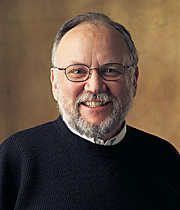By Diana Brement,
JTNews Columnist
Retired Starbucks president Howard Behar has just published his first book. It’s Not About the Coffee: Leadership Principles from a Life at Starbucks details the philosophies Behar developed during his 17 years at the now-international coffee retailer. (The Penguin hardcover is $19.95, and was co-written with Janet Goldstein.)
Behar, who is currently spending most of his time giving speeches based on the book, grew up in historically Jewish retail environments. As a kid he worked in his father’s little Wallingford grocery store, back when the now-bustling, urban neighborhood was semi-rural.
“I used to set up a tiny store outside his store selling gum,” he says, “but of course my cost to product was zero, since I was chewing most of the gum.”
He attended Roosevelt High School (“there were about 10 Jews there”) and later worked at his uncles’ jewelry store, as well as at his brother and brother-in-law’s furniture businesses.
“My mother’s family in Seattle was the Bender family,” he says. And almost all of the Benders were in retail. “Jewelers, tailors, pawn shop owners, I saw that from my early days…Retailing was in my blood, it was there from my very beginning.”
Behar’s mother had 13 siblings, most of whom emigrated from Russia before the Russian Revolution.
“I have well over 300 cousins at various levels,” (on his mother’s side), he says.
Although he’s not working at Starbucks anymore, and is also coming off of the company’s board after more than 19 years, “I still try to help,” he says. “I do a lot of coaching at Starbucks, and they do a lot of coaching with me. I’m still learning.”
“It’s a people business,” he says of retailing; “it’s all about relationships.” Like the ones he recalls seeing his father develop with customers, giving people food during the Depression.
Behar’s father came from Bulgaria, and as a new immigrant with limited English, worked “as a schlepper” in the Pike Place Market.
“A typical Sephardic immigration story,” Behar says.
The elder Behar saved enough money to open a store and then built a building.
“I don’t know how he had the guts to build the building,” reflects Behar. His parents almost lost the building during the Depression. (It still stands, a few blocks west of I-5 on North 45th Street.)
Two Starbucks co-workers, Jane Melvin and consultant Annette Moser-Wellman, encouraged him to write the book.
“They kept telling me, “˜you’ve got to put this stuff down,'” he recalls, “and I kept saying, “˜I’m not a book writer, I’m a do-er.'”
Eventually though, they pinned him down and “as we got into it, I found it was fun.”
Half the net proceeds from book sales will benefit Starbuck’s CUP — Caring Unites Partners — fund, which supports partners of employees of the company when they have small needs — “maybe they missed a rent check, or someone passed away, and they need a small grant.”
The other half goes to the Robert Greenleaf Center for Servant Leadership, which promotes the idea that leaders, particularly corporate leaders, are servants of the people. “Today we call it corporate social responsibility,” says Behar. “The understanding that business is not there only to make a profit. We are [also] there to help people use their creative talents to make a living. In doing so, we make a profit, but mostly we add value to the world.”
He looks at his involvement in Jewish Family Service, or in his congregation, Temple B’nai Torah, the same way.
“I have a responsibility to help,” he says. “It’s a continuous loop, there can’t be a break.”
Behar serves on the boards of the Washington State Budget and Policy Center, the Gap, Rosewood Capital and a small company called Anna’s Linens. He’s admittedly busy. “Busy is easy,” he says, “but productive is a lot more difficult and I want to stay productive.”
Behar says his wife, Lynn, is a busy person, too. A former clinical oncology social worker, she works part-time and is active in Cancer Lifeline.
Asked if he had any words for the local Jewish community, Behar jumped at the opportunity.
“It’s great that we support the institutions around the city, from all the theaters to the opera hall, to the museums,” he says, “but we can’t forget our responsibility to the people in our community who have less than we do, particularly in the Jewish community.
“We can’t forget where we came from. Let’s make sure we’re taking care of our own…. We’re not even coming close to providing for the needs of the Jewish community.”
That includes, he says, the stereotype that there are no poor, no drug addicts, no victims of domestic violence among us.
“We’ve got to step up,” he says. “We’re all there to help each other and move the world forward.”
